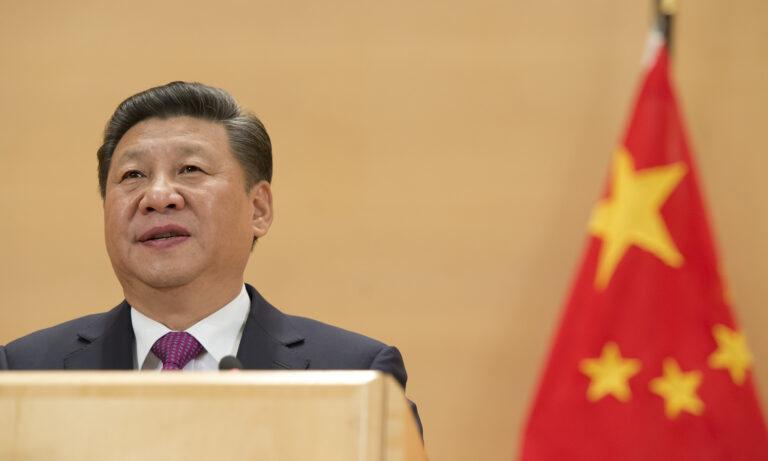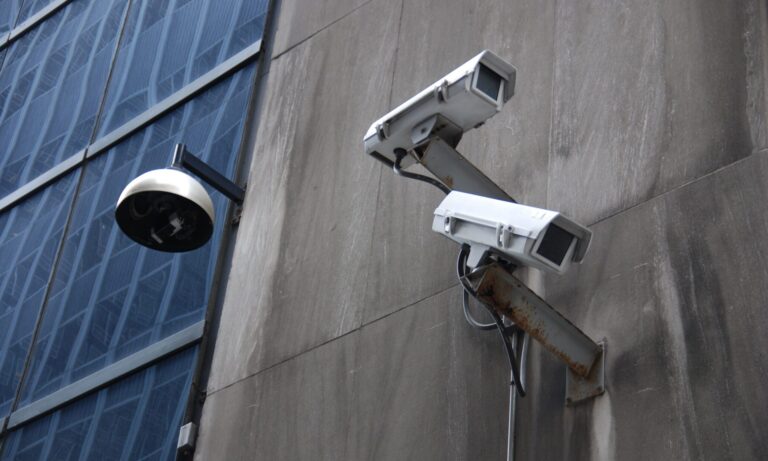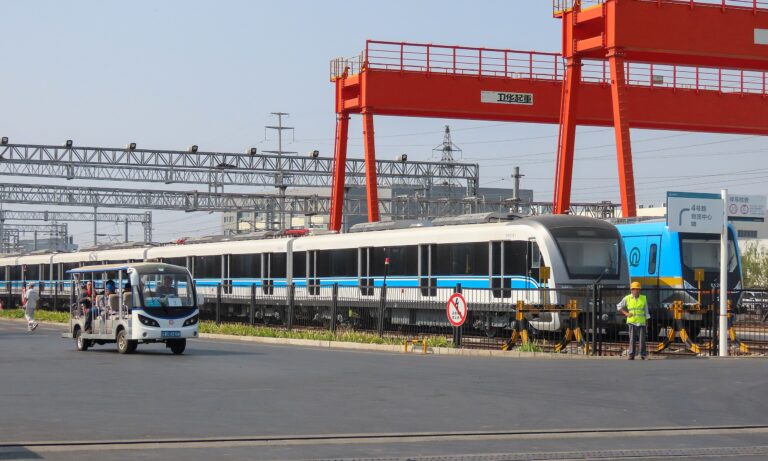
Ties to Europe remain too important for China to cross clear red lines in its support for the Russian military during ongoing fighting in Ukraine. However, following a ceasefire, Beijing may argue that nothing prevents peacetime weapons deliveries to a strategic partner.
New Investigations on China’s Defense Technology Aid
The Associated Press reported that China has surged exports of dual-use goods and technology to Russia without which Moscow’s war of aggression could not continue. Anonymous sources in the Biden Administration speak of various machine tools, microelectronics needed for missiles, aircraft and tanks, nitrocellulose required for artillery shells, optical components needed for tanks and armored vehicles, drone engines and turbojet engines that are used in cruise missiles. Moreover, the cooperation is said to entail the provision of satellite imagery services, help in upgrading Russian satellite capabilities, as well as work towards joint drone production in Russia. Drawing on the same sources, the report lists specific Chinese companies like Wuhan Global Sensor Technology Co., Wuhan Tongsheng Technology Co. Ltd., Hikvision, iRay Technology and North China Research Institute of Electro-Optics as suppliers (all regarding optical components). A C4ADS study further lists Poly Group’s Poly Technologies Inc as supplying relevant goods to sanctioned Russian defense companies. At the same time, the cited officials assess as correct Beijing’s own statements that there has been no direct Chinese lethal military support to Russia.
On dual-use goods and technology defined as “battlefield goods”, a study by the Kyiv School of Economics complicates the picture. It holds that the “country of producer” for relevant Russian imports in 2023 was (slightly) more often a Western country (esp. the US) than China. Meanwhile, the most important “country of origin” was China, and the “country of seller” and “country of dispatch” overwhelmingly was Mainland China or Hong Kong. It appears that a comprehensive approach is needed – more strongly pressuring Western companies to improve due diligence and insistently reminding the Chinese side of European core interests.
This article attempts to provide a preliminary prognosis on how far China will go in its support for the Russian military during the rest of Russia’s current war of aggression, but also after a potential ceasefire or peace agreement (when Russia will build the forces required for the future wars of aggression it likely plans to conduct in Eastern Europe should Ukraine not enter NATO).
China is not a Replacement for the EU (so far)
It is true that China has been Russia’s main economic lifeline during the Russia-Ukraine War. It took time for the EU to wind down its enormous energy imports from Russia, and the bloc still accounted for the largest share of Russian export revenues in 2022. Since 2023, and EU sanctions on Russian oil and petroleum product exports, China took over. According to data of the Centre for Research on Energy and Clean Air (CREA) in Finland, China accounted for 50 percent of Russia’s total monthly fossil fuel exports in February 2024; followed by Turkey (19 percent) and India (13 percent). Moscow was quite successful in reorienting oil exports away from Europe. More than 50 percent of Russia’s crude oil exports in February 2024 went to China, with a fraction going to India and Turkey, and even less to the EU. On Russia’s natural gas exports, though, China still trails the EU, despite the latter drastically reducing its intake.
China did not, however, replace Russia’s lost revenue from overall exports to the EU. Russia’s total monthly exports to the EU fell from about 20 billion EUR in January 2022, to about 4 billion EUR in September 2023, i.e. by about 16 billion EUR (and trending downward). Meanwhile, Russia’s total monthly exports to China only rose from about 7 billion EUR in January 2022 to about 9.6 billion EUR in January 2024, i.e. by about 2.6 billion EUR. This is to say that China has only covered about 16 percent of Russia’s lost revenue.
The picture is much more drastic in foreign direct investment. Russia used to see annual inward FDI flows in the double digit billion EUR range from the mid-2000s to 2021 followed by similar sized net outflows (i.e. negative numbers) in 2022 and 2023. Key FDI sources – next to “round-tripping” by investors from Russia itself – were EU (and other “Western”) countries. Reported FDI flows from China to Russia were only in the hundreds of millions in 2022 (and after).
Beijing could certainly have done more to support Russia, and opted against that policy. Russia ranks 7th among target countries for Chinese FDI in the oil and gas sector, its share in China’s oil imports marginally rose from 14 percent to 16 percent since 2022, and the Power of Siberia 2 gas pipeline remains on the drawing board. Beijing remains committed to its diversification strategy in energy imports, and is very conscious of its drastically increased leverage in negotiations with Russia. China’s government and companies also remain concerned about potential Western secondary sanctions, or simply consider investment in Russia unattractive. The Chinese economy post-COVID remains troubled, domestic consumption insufficient, and growth dependent on external economic relations. Meanwhile, the EU remained China’s No. 1 trade partner in January-February 2024, and Russia is still less important than Australia. China increasingly lacks FDI inflows, is highly unlikely to attract any from Russia, and EU investors are the No. 1 ultimate source of FDI stock in China i.e. entities that control decisions, not “vehicles” in Hong Kong. Clearly, the EU has leverage to apply on China.
China’s Foreign Policy Experts Urge Continued Prudence and Balance
One reason for China holding back is the nuanced and cautious attitude of its foreign policy elites on Russia’s war. Chinese scholars consider Beijing’s policies on the war in 2022 and 2023 successful, and counsel prudence, balance and continuity. Discussions along these lines can be reviewed on key platforms for expert foreign policy debate: aisixiang.com (ties to Peking University), cfisnet.com (ties to former Chinese diplomats), and cn.chinausfocus.com (ties to the Chinese People’s Political Consultative Conference, partly in English, partly external audience). Scholars intend to and do provide advice, and have a degree of access to leadership. Their recommendations constitute one factor among many others leading to eventual policy outcomes. Debates from March 2023 to March 2024 have largely been in line with those between September 2022 and February 2023.
Experts on international relations in China argue that Beijing needs Moscow as a partner against Washington. They view the current partnership as a hard-won success that cannot be given up and that no external force can divide. Chinese scholars describe cooperation with Moscow in international organizations as important, and Russia as key for a “global strategic balance”. They praise the rise in trade volumes between China and Russia and note increased military interoperability due to continued joint exercises. Russia is said to have employed “parallel imports” creatively to get around sanctions; when listing involved countries neither Mainland China nor Hong Kong is mentioned, which implies an unwillingness to openly and straightforwardly commit to Russia in ways that could be overly destructive to China-EU relations. The overall strategic partnership is seen as “consolidated” due to Russia’s “Look East”strategy, i.e. cutting ties with the West.
The same platforms for foreign policy debates also see many scholars argue that Russia’s war harms China’s interests. Experts note the UN Under-Secretary-General arguing that Russia undermines the global security order, and themselves see Moscow harming the international legal order. They describe Russia as a potentially bigger problem for China-EU relations than the US, following Moscow’s “intransigence” and rejection of EU engagement policies.
Meanwhile, the strategic importance of the EU to China in the context of competition with the US is termed as “no less than that of Russia”. Chinese economic interests are deemed harmed, as 1) the EU became acutely aware of its vulnerabilities and turned to de-risking2) globalization and worldwide economic development were undermined, and 3) Russia’s attacks on civilian facilities aimed at stopping grain exports have impacted China’s food security. Scholars see China’s security interests damaged as Russia’s war leads to intensified and modernized NATO-East Asia (esp. Japan) ties, and Russia’s nuclear threats are prompting a greater Japanese interest in nuclear sharing with the US. Russia’s “xenophobia” and “isolationism” are said to have led it towards a radicalized nationalist foreign policy, where “shared bitter hatred” stands in for a genuine national identity, investors are scared off, costs of one’s actions are underestimated, and increasing marginalization on the world stage follows.
Chinese scholars expect long-term confrontation with a new “iron curtain” descending upon Europe. They argue that “Putin has no intention of making peace soon” and “there is no way back for Ukraine, [because] the Russia-Ukraine conflict is a matter of life and death for the Ukrainian state”. The “slow progress” in “Ukraine’s war of defense” is attributed to “the West’s policy of not provoking Russia too much”, and US resolve cracking. Chinese experts in early 2024 argue that the EU has come to see the war as a decisive moment influencing the European security order in the decades to come as long as Russia does not give up its “dreams of empire”. Brussels supposedly also sees a chance to win the trust of “Global South” countries seeking equality for smaller states. Europe is said to reject geopolitical gray-zones now, and to move towards strategic autonomy with a series of security guarantees to Ukraine. Moscow, in turn, is seen as struggling as it uses up its arms stockpiles and lacks components and technology from the West in the production process. Russia is described as still resilient and stable despite the “one-day mutiny” led by Yevgeny Prigozhin. At the same time, authors see the Russian economy as struggling, because it is “sorely lacking” EU investment and credit as well as talent after esp. IT specialists left. The Chinese scholars also have a pessimistic outlook on Russian energy export prospects and R&D progress. Lastly, they liken the slow, probably unsustainable and defense sector-led growth to the Brezhnev-era.
The Post-War Phase Will Likely See China Bolster a Renewed Russian Military Build-up
It remains unlikely that the Chinese government and Chinese defense companies will make substantial deliveries of heavy weapons and ammunition in support of Russia’s current war of aggression against Ukraine. With such a step, the Chinese leadership would act against China’s economic interests as illustrated by current economic data, against China’s security interests in Northeast Asia and also contrary to the wisdom of China’s scholars. Decades of strategic progress followed by relative stability in China’s relations with Europe could be undermined in very short order. The political risk associated with such a course of action is likely too high. Data published since 2022 also does not suggest that China will become a trade and investment partner to Russia on a par with pre-2022 Europe (at least) for the rest of this decade.
The European side will likely communicate to China that its key role in dual-use goods reaching Russia during this war is now interpreted differently in the context of Republicans blocking US aid to Ukraine from the fall of 2023 to (at least) April 2024. China’s actions more straightforwardly contravene European interests now, not US interests. A steadily growing number of Mainland Chinese and Hong Kong companies could be blacklisted, barring EU entities from selling “battlefield” or dual-use goods to them. Overall legislation on export controls and outbound investment may have to be adapted to take account of China’s role in “battlefield goods” reaching Russia’s invasion forces. Ongoing intense diplomatic exchanges may provide an opportunity to remind Beijing of benefits and prospects of EU-China relations, and to push for China to make selective changes and avoid the above-listed measures.
However, even if there is space for the EU to pressure China now, it might disappear under different conditions. Following a ceasefire or peace agreement between Russia and Ukraine, China will likely start directly supplying lethal aid to Russia.
The Russian military has lost and continues to lose vast numbers of heavy weapons in its war against Ukraine, using up active pre-war fleets as well as enormous stocks built up since the Second World War. Should Moscow not achieve the subjugation of Ukraine in this war, it will likely build up forces to attack again as soon as possible, unless such a course of action is blocked by Ukraine joining NATO. Even though Russia’s defense industry has stepped up production radically, demand for imports will likely be high. China having already assumed a key role on dual-use goods and technology, as well as component parts for several weapons systems, a further step towards delivering complete systems will likely follow. Chinese technology will certainly be more interesting to Moscow than North Korea’s or Iran’s, and the Chinese arms industry could tap into a very lucrative market.
Beijing could argue that active fighting has ended, there is no reason not to supply an important strategic partner, and that it is thus still acting as a responsible major power. Europe’s governments thus need to therefore consider a (much) narrower window of opportunity for the NATO accession of Ukraine, should they want to prevent another war.
Written by
Thomas Eder
thomassederThomas Eder is a Post-Doc Researcher at the Austrian Institute for International Affairs (OIIP). He works on China's foreign and security policy, with a focus on China in the EU neighborhood, China-Russia, and China-EU relations.


